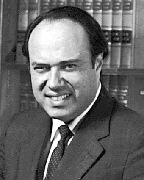Homeowners Associations are common interest communities not formed under the Massachusetts Condominium Statute, Chapter 183A of the Massachusetts General Laws. Often, for a subdivision of homes, there is a need for a Homeowners Association in order to enforce a common scheme of restrictions and to provide for the maintenance of roads and other common property.
This is accomplished by the creation and recording of an umbrella organization, usually a trust, with each homeowner being a beneficiary of the trust. The developer is the sole trustee until all of the homes are sold. When all of the homes are sold, three or more of the homeowners become the trustees. The trust enforces a Declaration of Covenants, Conditions and Restrictions (DCC and R). The DCC and R is recorded before the first house is conveyed. All of the homeowners are bound by the DCC and R.
The trust is not governed by Chapter 183A. This can create problems, for example, there is need to incorporate the lien enforcement and priority lien provisions of Chapter 183A into the documents. As long as this is done, the trust and DCC and R will work to impose a common scheme on the homes in the subdivision. As there is no statute governing a Homeowners Association, there is broad freedom in the provisions of the trust and the DCC and R. It can place restrictions on the size and appearance of the homes and other restrictions which can benefit the homeowners.
Saul Feldman is a real estate attorney with Feldman & Feldman, P.C., Boston, Mass.
Tags:









